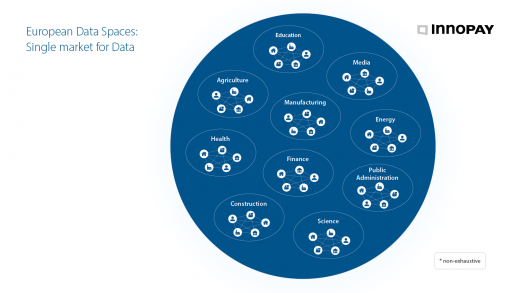Digital sustainability: unleashing the power of trust

In May I had the privilege of delivering a keynote speech at the Slovenian DSI conference “Co-creating a Digital and Sustainable Slovenia”. The topic of digital sustainability couldn’t be more timely, but why is it so important?
To me digital sustainability is more than the ecological footprint of technology, it is also about generating long-term value, transparency, and equity for all stakeholders involved. Let’s delve deeper into the concept.
Environmental aspect
When we think of sustainability, the first thing that comes to mind is the environmental impact. It’s easy to overlook the material effects of the technologies we use daily. In an era where we’re becoming increasingly aware of our own behaviour environmental consequences (reducing meat consumption, flying less), we seem to disregard the environmental footprint of these technologies, often exacerbated by product names that 'hide' said materiality (i.e. "cloud")..
Addressing the environmental aspects of technology requires a comprehensive approach. This includes adopting energy-efficient designs for devices and data centres, transitioning to renewable energy sources, promoting circular economy principles to reduce electronic waste, and raising awareness about the environmental impact of our digital behaviours. Furthermore, fostering innovation for more sustainable technologies and encouraging responsible consumption and production patterns are essential steps towards minimising the environmental footprint of technology.
By recognising and addressing these environmental challenges, we can work towards a more sustainable digital future that balances technological advancements with the preservation of our planet’s resources and ecosystems.
Social and economic aspects
But digital sustainability goes beyond the environmental dimension: it profoundly impacts the social and economic realms. True digital sustainability necessitates mutually beneficial relationships and a balanced “data benefit balance”. Currently, this balance is significantly skewed in favour of large technology platforms. Furthermore, the lack of transparency surrounding this benefit asymmetry is deeply concerning. These platforms exploit users’ data transparency or adequate protection.
However, this imbalance in the data benefit balance is not limited to large platforms alone. Many other organisations’ digital products and services maintain a debatable balance. Users often surrender their data for trivial discounts or perks, unaware of the true value they are providing. Sharing data for a meagre one-time discount or sharing health data for a minimal insurance discount is just a few examples.
On a more systemic level, social sustainability is crucial. People are growing increasingly uneasy with the exploitation of their attention and data. While they may not have the immediate ability to switch platforms, consumers are gradually exerting their agency. They are making choices based on what they perceive as socially sustainable platforms. As a result, alternatives like Mastodon gain traction as users seek to distance themselves from platforms deemed socially unsustainable.
The interplay between social and economic aspects is evident. Economic viability can only be achieved by offering trust. Trust is the foundation upon which sustainable propositions are built. If trust is broken, organisations become hesitant to share data within their ecosystems or supply chains. People lose faith and refrain from sharing their data. How can we shift the data benefit balance in the right direction? How can we develop alternative business models that counter the implicit trade-offs imposed by a few dominant technology platforms?
Digital sustainability tackles these challenges. It’s time to take these elements into account and foster the much-needed trust. It is through trust that we unlock the power of data. By sharing data, we enable digital transformation that truly addresses society’s pressing challenges, such as safeguarding democracy, promoting equality, and combating climate change.
EU Data Spaces
The European Union (EU) recognises the significance of digital sustainability and aims to achieve it through the concept of Data Spaces. These are federated decentralised data ecosystems within a certain application domain that is based on shared policies and rules. In simpler words: secure and trusted environments where individuals and organisations have confidence in sharing their data, knowing that their data rights and privacy are protected. These ecosystems prioritise the respect the rights of people and organisations, and enable data to be shared across sectors and borders within the European Union, unlocking its full potential for utilisation.
Data sovereignty is a fundamental principle at the core of the Data Spaces initiative. It involves empowering individuals and organisations with greater control and ownership over their data, enabling them to decide how and under what conditions their data is shared.
By promoting data sovereignty within Data Spaces, the EU seeks to address concerns about data privacy, security, and the dominance of large technology platforms. The establishment of Data Spaces will facilitate the flow of data and contribute to the development of a European 'single market for data'.
A no-regret action paradigm
By embracing data sovereignty as a key design principle, we recognise the value of empowering individuals and organisations with control over their data, respecting their data rights, and ensuring privacy and security.
I encourage organisations to recognise the importance of data sovereignty, and to incorporate it into their data management strategies and practices. It is a proactive step that they can take without regret. They will be rewarded with long-term advantages, such as increased trust, improved data protection, and enhanced compliance with data regulations.






